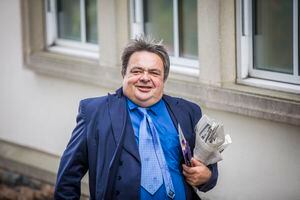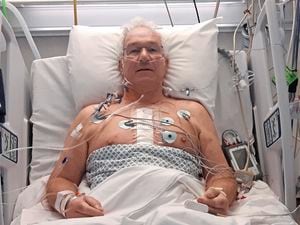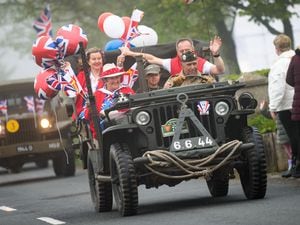‘Question time is vital part of parliamentary scrutiny’
QUESTION TIME in the States is a ‘vital part’ of scrutiny that is liked by the public for holding senior figures to account, according to the deputy who submitted the most last term.

John Gollop is a prolific user of the period at the start of a States meeting when any member can quiz a committee president with questions submitted in advance.
Other members are allowed to ask follow-up questions.
Senior members have highlighted a reluctance among new members of the Assembly to ask questions in public so far this term.
‘Question time for me has many advantages and dimensions. It is a vitally important part of parliamentary scrutiny and we are not just a local island assembly or a town council,’ he said.
‘We are full members of the Commonwealth Parliamentary Association and actually we members ask many less questions than in Jersey or in the UK.
‘My frequent questions would not be considered odd elsewhere. It is the reluctance to use question time that is unusual, actually, by other members past and present.’
Deputy Gollop was responsible for 64, or 47%, of all the questions asked in this period last term.
Deputy David De Lisle came next with 20, followed by Lester Queripel with 10.
Deputy Gollop said oral questions offered an immediate engagement with the public whether present in the meeting or listening online or on the radio.
‘They can instantly address topicality, such as women’s safety last month, communication press conferences this month, or education in lockdown.
‘They also demand, especially through supplementary questions, a personal political response from a president rather than a stock lengthy civil service-drafted written response. It tests leadership abilities of office-holders and can inform members who may need to step down.’
Advisers and States members are now encouraging better drafting and use of questions, he said. The States’ Assembly and Constitution Committee has also held workshops to help improve the use of official questions.
‘Overuse is bad. I would admit more time, easier deadlines and research assurance would improve the quality of some questions, including my own on occasion,’ said Deputy Gollop.
‘But oral questions importantly, and this is key, enable all members to hear the question and answer and respond with reactions and perhaps supplementary questions of their own. This format doesn’t work with written questions or questions behind the scenes.’
Deputy Gollop will be one of three members to ask questions in today's States meeting.
The questioner questioned
We put Deputy John Gollop on the spot.
Q Why ask questions?
A ‘Maybe someone else in politics wants an answer but it is not politic for him or her to ask a question themselves. Or the media obviously wants a topic not hushed up. Or I want to know an answer. Or I already know the answer but want elucidation and confirmation.
Or maybe people in the community or voluntary sectors or minorities want their issue or profile raised.’
Q Why would new States members be reluctant to ask questions?
A ‘Some members are now becoming more active at question time, especially those with past presidential experience.
‘I think sometimes newer members are reluctant to make an impact in question time because they risk criticism and a bad boy maverick reputation as maybe rocking the boat, unsettling colleagues or making life tough for the civil service, costing scarce resources.’
Q Does asking questions in the States make you look a better deputy?
A ‘A critic or cynic might suggest questions are a good opportunity for personal publicity, but other opportunities do exist, through social media and written questions, which potentially can make more of an impact on a dull political news day.
‘I wouldn’t deny question time fulfils a role and I would note that many of the more regular posers of questions, from Deputy de Lisle to Deputy Lester Queripel, have successfully achieved re-election when other younger politicians with bigger leadership jobs have not succeeded.
‘I therefore think the public like question time and want senior figures held to account.’





